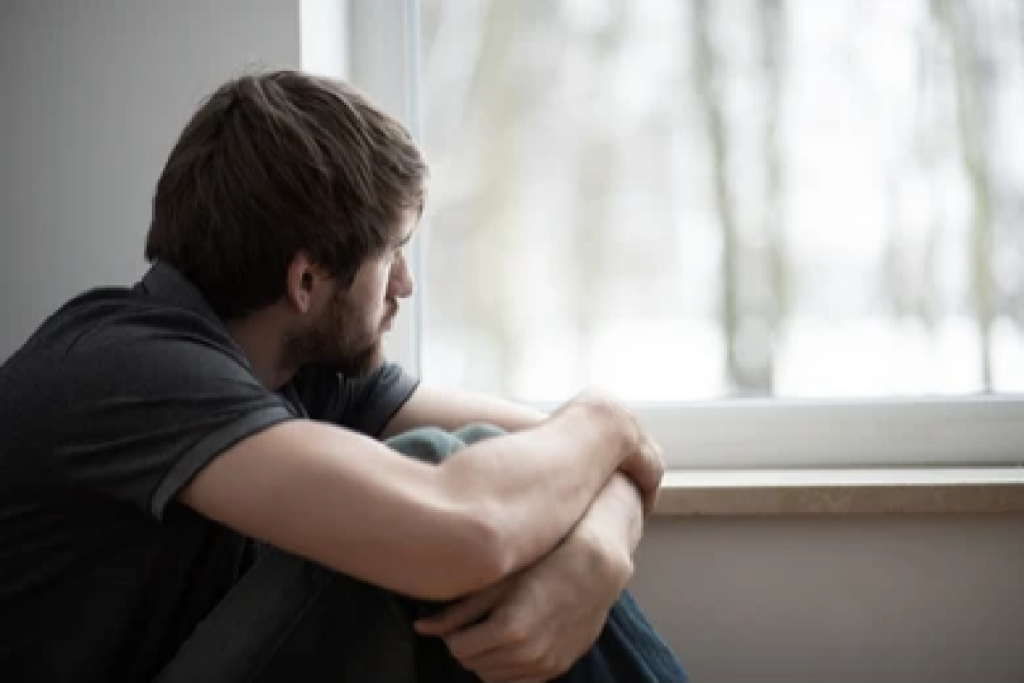Why's It So Hard to Believe You Can Be Happy Being Single?


Written and verified by the psychologist Yurdey Fernanda Herran Murillo
Being single is fine when you’re young, but what happens when you reach the age of 30 without a partner? Well, it’s then that the situation gets rather complicated because, for many people, it’s hard to believe that being single can be enjoyed. After all, we all grew up with the idea of living happily ever after with a partner. However, if you believe that romantic love always makes you happier, you’re denying yourself other forms of well-being.
Neuroscience demonstrates that areas in the brain related to pleasure and reward are more active when we’re in the company of those we love. So, we invite you to ask yourself: who do you love? You might say your partner or spouse. But, love is much more. As we said, your brain lights up when you’re in the company of a loved one, and this could be your grandmother or your son.
If you’ve got single friends, you should avoid saying things like “You’ll regret it one day”, “Don’t worry, it’s just a passing phase” or “You just haven’t met the right person yet”. Imagine if you said similar to a friend with a partner. What would they say?
Let’s take a look at why it’s so hard to imagine the fact of being single as a conscious life decision.

1. The tendency for others to matchmake
Matchmaking refers to the romantic desire to unite two people in a romantic relationship. Just think of all the tv series, books, and Disney stories that suggest that being in a relationship is the only right and normal thing to do.
The tendency to put everything in pairs has gone on since antiquity. For example, certain biblical texts refer to the idea that a husband and wife should become “one flesh” and then there’s the image of Noah herding the animals into the ark, two by two.
Being in a relationship isn’t just a personal decision. On the contrary, it’s seen as something normal and almost mandatory to be a couple. Consequently, single individuals often face social and cultural pressure in this regard. However, it’s important to be aware of the limiting beliefs that restrict ties to the small circle of romantic love that only involves two people.
2. Those who are single have ‘failed’
For some, singleness equals failure. These individuals claim that single people have never found their “better half” or that so much time has passed and they “missed the boat”. This perspective has certain negative connotations, such as a deficit or lack of something.
However, studies show that single people enjoy more freedom. Moreover, they associate the progress of their personal development with being single.
Of course, being single has both upsides and downsides, but it certainly shouldn’t be either demonized or romanticized. Singleness as a stigma or a stereotype ignores the variety of ways in which individuals can assume their marital status. Therefore, it’s important to understand that people can be linked in extremely different ways.
Some see being single as a sign of failure. On the other hand, there are those who view being single as a genuine triumph and a chance to develop their life plan. Whatever the case may be, nobody knows what the future holds for them, but we all know that failure is just an adjective and is insufficient to describe the complexity of human relationships.
3. The problem of getting older
Could loneliness be a problem? Maybe going into the fall of life without a partner might seem like a bad idea. After all, if you’re alone in your old age, who will you cry with? If you don’t get married, who will you have to share your joys with?
There’s no need to worry. In singledom, it’s completely possible to express your emotion and affection to other people. For instance, for older men, the experience of living alone means having the opportunity for personal growth and the freedom for self-determination. At the same time, they’re able to maintain structure, balance, and a sense of purpose in their lives.
Nor does the fact that a person never marries or establishes a relationship condemn their old age to loneliness. On the contrary, the enjoyment of love isn’t the sole preserve of the married. Indeed, single people can enjoy sufficiently satisfying and nurturing affective relationships throughout their lives. Remember that being single isn’t the same as being alone or lonely.
4. Happily married or happily single
Whos happier, the married or the singletons among us? The first thing we need to understand is that happiness is a complex phenomenon that depends on different factors.
The second thing is that, rather than defending singledom or marriage, it must be recognized that both offer great possibilities for achieving a happy life. In the same way, the two civil states contain great challenges and difficulties in a long process that may or may not lead to the achievement of a rich and full life. Juan Antonio Bernad, author of the book, La Psicología del Soltero: Entre El Mito y La Realidad (The Psychology of the Singleton: Between Myth and Reality) said that:
“There are many versions of full life, one of them is that of the singleton, which is neither better nor worse than that of the married person; both carry great possibilities and also numerous limitations”.
5. Being alone versus feeling alone
Being single doesn’t necessarily equal being a lone ranger. In fact, many married people with large families feel lonely. Loneliness is defined as an unpleasant experience due to a lack of important social interactions. It isn’t related to marital status.
Being single is different from being lonely. Some singles may experience feelings of loneliness, but this isn’t significantly different than in other population groups. That said, it’s difficult for us to even understand loneliness because we’re so used to stereotypes and ideas that aren’t fulfilled by all singles, or even by most.
Being single today is totally different from the stigma attached to it 50 years ago when 75 percent of the American population married between the ages of 20 and 35. Indeed, today, the idea that people prioritize other areas of their lives is more of a reality for everyone, as it’s accepted that there’s more than one way of living a fulfilling life.

Knowing how to be alone and loving it
Today, when there’s so much diversity and the many different ways of bonding and loving have become more visible, it’s a good idea to stop and consider that the single life today has little to do with how it was viewed in previous times. As a matter of fact, it’s important to avoid any kind of generalization about single people and to understand that nothing is black and white, but rather a spectrum of rainbows.
Finally, being single can be enjoyed because the “better half” idea is a complete myth. We’re all surrounded by people who can offer us the gift of their love and receive ours. You must remember that love goes way beyond marital status, and it doesn’t just involve the romantic kind.
Being single is fine when you’re young, but what happens when you reach the age of 30 without a partner? Well, it’s then that the situation gets rather complicated because, for many people, it’s hard to believe that being single can be enjoyed. After all, we all grew up with the idea of living happily ever after with a partner. However, if you believe that romantic love always makes you happier, you’re denying yourself other forms of well-being.
Neuroscience demonstrates that areas in the brain related to pleasure and reward are more active when we’re in the company of those we love. So, we invite you to ask yourself: who do you love? You might say your partner or spouse. But, love is much more. As we said, your brain lights up when you’re in the company of a loved one, and this could be your grandmother or your son.
If you’ve got single friends, you should avoid saying things like “You’ll regret it one day”, “Don’t worry, it’s just a passing phase” or “You just haven’t met the right person yet”. Imagine if you said similar to a friend with a partner. What would they say?
Let’s take a look at why it’s so hard to imagine the fact of being single as a conscious life decision.

1. The tendency for others to matchmake
Matchmaking refers to the romantic desire to unite two people in a romantic relationship. Just think of all the tv series, books, and Disney stories that suggest that being in a relationship is the only right and normal thing to do.
The tendency to put everything in pairs has gone on since antiquity. For example, certain biblical texts refer to the idea that a husband and wife should become “one flesh” and then there’s the image of Noah herding the animals into the ark, two by two.
Being in a relationship isn’t just a personal decision. On the contrary, it’s seen as something normal and almost mandatory to be a couple. Consequently, single individuals often face social and cultural pressure in this regard. However, it’s important to be aware of the limiting beliefs that restrict ties to the small circle of romantic love that only involves two people.
2. Those who are single have ‘failed’
For some, singleness equals failure. These individuals claim that single people have never found their “better half” or that so much time has passed and they “missed the boat”. This perspective has certain negative connotations, such as a deficit or lack of something.
However, studies show that single people enjoy more freedom. Moreover, they associate the progress of their personal development with being single.
Of course, being single has both upsides and downsides, but it certainly shouldn’t be either demonized or romanticized. Singleness as a stigma or a stereotype ignores the variety of ways in which individuals can assume their marital status. Therefore, it’s important to understand that people can be linked in extremely different ways.
Some see being single as a sign of failure. On the other hand, there are those who view being single as a genuine triumph and a chance to develop their life plan. Whatever the case may be, nobody knows what the future holds for them, but we all know that failure is just an adjective and is insufficient to describe the complexity of human relationships.
3. The problem of getting older
Could loneliness be a problem? Maybe going into the fall of life without a partner might seem like a bad idea. After all, if you’re alone in your old age, who will you cry with? If you don’t get married, who will you have to share your joys with?
There’s no need to worry. In singledom, it’s completely possible to express your emotion and affection to other people. For instance, for older men, the experience of living alone means having the opportunity for personal growth and the freedom for self-determination. At the same time, they’re able to maintain structure, balance, and a sense of purpose in their lives.
Nor does the fact that a person never marries or establishes a relationship condemn their old age to loneliness. On the contrary, the enjoyment of love isn’t the sole preserve of the married. Indeed, single people can enjoy sufficiently satisfying and nurturing affective relationships throughout their lives. Remember that being single isn’t the same as being alone or lonely.
4. Happily married or happily single
Whos happier, the married or the singletons among us? The first thing we need to understand is that happiness is a complex phenomenon that depends on different factors.
The second thing is that, rather than defending singledom or marriage, it must be recognized that both offer great possibilities for achieving a happy life. In the same way, the two civil states contain great challenges and difficulties in a long process that may or may not lead to the achievement of a rich and full life. Juan Antonio Bernad, author of the book, La Psicología del Soltero: Entre El Mito y La Realidad (The Psychology of the Singleton: Between Myth and Reality) said that:
“There are many versions of full life, one of them is that of the singleton, which is neither better nor worse than that of the married person; both carry great possibilities and also numerous limitations”.
5. Being alone versus feeling alone
Being single doesn’t necessarily equal being a lone ranger. In fact, many married people with large families feel lonely. Loneliness is defined as an unpleasant experience due to a lack of important social interactions. It isn’t related to marital status.
Being single is different from being lonely. Some singles may experience feelings of loneliness, but this isn’t significantly different than in other population groups. That said, it’s difficult for us to even understand loneliness because we’re so used to stereotypes and ideas that aren’t fulfilled by all singles, or even by most.
Being single today is totally different from the stigma attached to it 50 years ago when 75 percent of the American population married between the ages of 20 and 35. Indeed, today, the idea that people prioritize other areas of their lives is more of a reality for everyone, as it’s accepted that there’s more than one way of living a fulfilling life.

Knowing how to be alone and loving it
Today, when there’s so much diversity and the many different ways of bonding and loving have become more visible, it’s a good idea to stop and consider that the single life today has little to do with how it was viewed in previous times. As a matter of fact, it’s important to avoid any kind of generalization about single people and to understand that nothing is black and white, but rather a spectrum of rainbows.
Finally, being single can be enjoyed because the “better half” idea is a complete myth. We’re all surrounded by people who can offer us the gift of their love and receive ours. You must remember that love goes way beyond marital status, and it doesn’t just involve the romantic kind.
All cited sources were thoroughly reviewed by our team to ensure their quality, reliability, currency, and validity. The bibliography of this article was considered reliable and of academic or scientific accuracy.
- Bernad, J. (2004). La psicología del soltero: entre el mito y la realidad.
- Çelik, K. (2018). Unmarried women with closed “windows of opportunity”: Professional women’s reasons for not getting married. Women’s Studies International Forum, 66, 48–55. doi:10.1016/j.wsif.2017.11.012.
- Peña, J. R. A. (2022). El cerebro enamorado.
- Yetter, L. S. (2010). The Experience of Older Men Living Alone. Geriatric Nursing, 31(6), 412–418. doi:10.1016/j.gerinurse.2010.07.001.
This text is provided for informational purposes only and does not replace consultation with a professional. If in doubt, consult your specialist.







